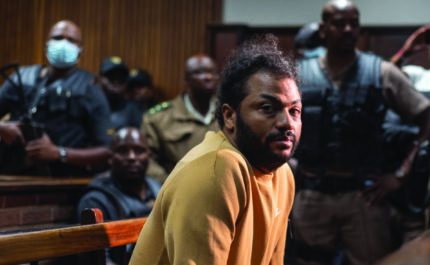DG #53 preview: Ireland’s far right riots
A preview of our story about the Dublin riots from issue 53 of Delayed Gratification

Flames rise from a car and a bus, set alight in Dublin on 23rd November 2023. Photo: Peter Murphy/AFP via Getty Images
The 53rd issue of Delayed Gratification features an article by our associate editor Matthew Lee about the Dublin riots in November 2023. Marcus Webb speaks to him about his reporting from the Irish capital.
Marcus Webb: What happened in November in Dublin, and why did you want to write about it for Delayed Gratification?
Matthew Lee: Well, what happened in Ireland on 23rd November was the country’s worst unrest in decades. In the middle of the day three young children and an adult were stabbed outside a primary school, and after rumours spread online that the attacker was an immigrant – he was actually a naturalised Irish citizen – the far right sparked a riot in central Dublin. There were trams, buses and police cars set on fire, and several shops were looted. I wanted to write about it because I think it’s the ideal Delayed Gratification topic – it’s both a big news story and something, if you live outside of Ireland, you may well have missed, or perhaps heard about but not really understood or spent much time engaging with. With the war in Gaza going on at the time, lots of big stories didn’t get the attention they might normally have received, and this was one of them. I wanted to try to understand why the rioting happened, and why Ireland is experiencing this significant backlash to immigration.
MW: So, why did the rioting happen?
ML: I needed 5,500 words to answer this question in the article! But in a nutshell Ireland has been experiencing record levels of immigration, including the arrival of over 100,000 Ukrainian refugees, at a time of a cost-of-living crisis and severe housing and homelessness crises. The country had some of the longest and strictest lockdowns in Europe during the pandemic, and the far right has been pretty smart in the way it’s exploited discontent over Covid rules, the strain on services such as health care and schools, and the keenly felt lack of housing. They’ve been trying to give people answers on why things feel broken in the form of baseless and racist conspiracy theories about globalists plotting to replace white people with immigrants, that kind of thing. Ireland has always been an outlier in Europe because it’s never elected a far right politician at any level – and over the past 20 years the country has transformed from a Catholic conservative place to a secular and progressive one. It feels like there’s a bit of a backlash taking place against all this progressive change.
MW: What was the atmosphere like in Dublin when you were there?
ML: I went two months after the violence and the city seemed totally normal. But immigration and the far right were clearly on many people’s minds. The people I spoke to were pretty worried about how divided the country seemed to be. And while Dublin was calm, the situation was very different in Roscrea, a town in County Tipperary where the only hotel had been closed to house asylum seekers. Weddings and functions had been cancelled, there were fears the closure would hit the struggling local economy – and people were pretty angry. They’ve been protesting at the hotel site for months, and many of the protesters have very valid reasons for being upset and worried. But they also have far right agitators turning up at the site to spread their conspiracy theories, and you do see decent people using the language and rhetoric of the far right. The far right have been pretty adept at using social media to mainstream their ideas. And when the stabbing happened at the primary school, they used social media to very quickly get organised and take to the streets.
You can read the full feature by Matthew Lee in issue 53 of Delayed Gratification, available from our online shop here.
Slow Journalism in your inbox, plus infographics, offers and more: sign up for the free DG newsletter. Sign me up
Thanks for signing up.








